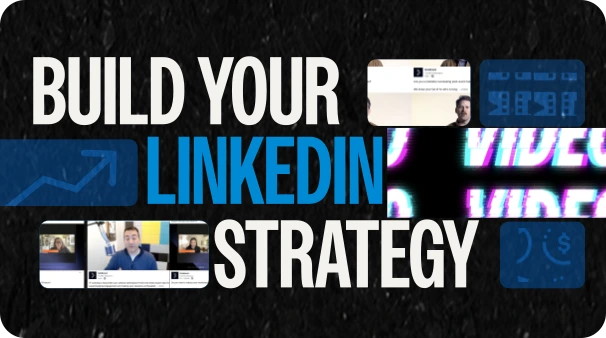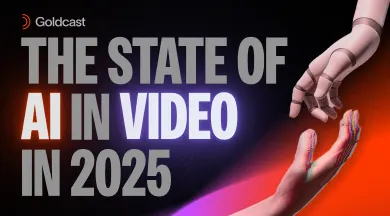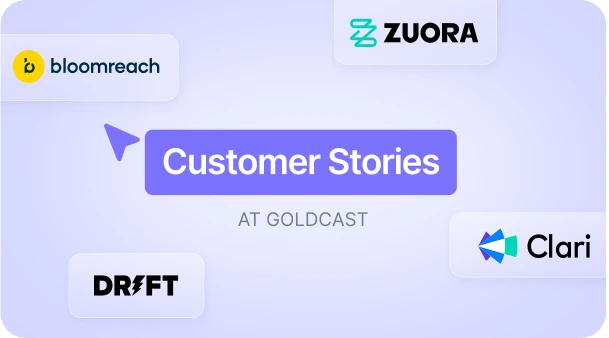The Power Guide for Event Marketers to Secure Bigger Budgets in 2025!

Maximize Your Marketing ROI
Join 10,000 other marketers already getting the best tips on running engaging events that boost pipeline and create raving fans.
As the year comes to an end, many event marketers are gearing up to secure additional budget to expand their event programs for the upcoming year. Communicating the value of events to key stakeholders, especially those holding the purse strings—CROs, CFOs, and CMOs—requires a focused strategy. I remember seeing a lot of requests for content on how to approach this tough conversation last year so I figured why not create a guide for it! And since I’m spoiled with having all of our past events with a wealth of knowledge from CMO Diaries, Event Marketers Live and more - I tapped in to using our new AI search feature. With AI Search, I was able to find all the golden nuggets of wisdom that has been shared with us over the past few years and tied it all up in a tidy little package, just for you! This guide will help you prepare and make a compelling case for why your event budget should be a priority investment for 2025. 1. Shift the conversation: Emphasize investment over cost
When requesting a larger budget, positioning is everything. Instead of framing the need as a “cost,” position it as a strategic investment in revenue growth. Use language that speaks to ROI, pipeline generation, and brand impact rather than just expenses. A useful phrase to start with might be:
“For an investment of $X in events, we forecast delivering Y in pipeline value. This isn’t just about securing budget—it's about maximizing our growth potential through events.”
This way, your request aligns with financial goals and emphasizes how events serve as revenue-driving channels.
Mark Jung - LinkedIn guru and co-founder at Authority, gives a hot tip on how to position requests for marketing budget - take a listen!
If you’re interested in hearing more for Mark, we had him on for a 4 part series back in July - catch the episodes on demand, here.
2. Present a clear forecast with data
Use data from past events to highlight the pipeline and revenue your events have already driven. For example, if your events helped close a significant portion of last year's pipeline, or contributed to brand awareness that drove lead engagement, quantify this. Show a direct correlation between the budget spent and pipeline produced.
Use a phrase like, “events are a gateway to impactful conversations and lead qualification."
Use metrics like:
- Lead conversion rates from events: Show how events helped qualify leads and accelerated the sales process.
- Engagement scores: Emphasize attendee engagement data, which indicates strong interest and future conversion potential.
- ROI dashboards and custom reporting: Use tools like ROI dashboards to show exactly how events support pipeline goals and produce quantifiable outcomes.
Dan Slagen, CMO at Tomorrow.io chatted with Kishore on our CMO Diaries series about how to balance financial planning for effective execution - link to full episode here
Did you know Goldcast has an ROI Dashboard? We built it with event marketers in mind to help guide these types of conversations, check it out - here!
3. Bring together cross-functional insights
Coordinate a planning call involving key teams—Customer Success, Sales, and Operations. A monthly cross-functional meeting is ideal for capturing different perspectives on event strategy and aligning your ask with company-wide goals.
CROs and CFOs often prioritize spending that benefits the entire organization, so demonstrating that events are central to both sales and customer success will make your case stronger. Having team insights shows you’ve thoroughly evaluated the impact of events across multiple business functions.
4. Align events with strategic revenue goals
Tie your budget request to revenue goals for the upcoming year. For example, if the company has an ambitious target for market expansion or increasing customer lifetime value, position events as a crucial lever for those goals. Use these talking points:
- Brand awareness and lead generation: Events drive top-of-funnel activity that generates brand exposure and builds relationships early in the customer journey.
- Pipeline acceleration: Events can be used to nurture leads faster, as they provide a high-touch experience that qualifies leads more effectively.
- Customer retention and upsell: For existing clients, events keep engagement high and open opportunities for product education and cross-selling, contributing to customer lifetime value.
5. Suggest data-driven tech investments
CFOs often prioritize investments that enhance operational efficiency. Propose that part of the budget go toward tech that provides data visibility and enables seamless lead tracking from event engagement through to closed deals.
For example - With platforms like Goldcast, you can ensure accurate post-event data flow into your CRM, enabling personalized and timely sales follow-ups. This data streamlines the follow-up process, increasing lead conversion rates and ROI, and demonstrates your commitment to optimizing every dollar. (we couldn’t help a shameless plug, can ya blame us?)
6. Show how your budget drives efficiency
Highlight that increasing the event budget will help the team “do more with less” by scaling the impact of each event. This is particularly persuasive to CFOs looking to reduce overall marketing costs.
I.e. - Goldcast offers a flexible, scalable platform that supports digital, hybrid, and in-person events with efficient, reusable templates and content repurposing options, meaning you’ll get more mileage out of each event.
7. Embrace the ROI mindset with compelling alternatives
If your CRO or CFO still has doubts, consider presenting alternative approaches that could maximize ROI, such as a more targeted series of smaller events or digital roadshows instead of larger tentpole events. This demonstrates a practical and adaptable mindset, focusing on sustainable growth rather than one-time expenditures.
Final thought: Create an engaging narrative
I’ll leave you with this, when preparing your proposal, keep it conversational and results-oriented. Rather than just listing numbers, tell a story about how events directly contribute to the company’s goals, using success stories from past events. Events are all about creating engaging, authentic experiences, so present your proposal as an extension of this mission to build connections and foster growth.
By leveraging these strategies, you’ll be well-prepared to make a strong case for an increased event budget, showcasing events as not just one-off gatherings but as essential, revenue-generating assets for the company’s future. Catch the event on demand
Stay In Touch
Platform
Resources
Company
Community
© 2025 Copyright Goldcast, Inc. All rights reserved.



 Upcoming Events
Upcoming Events Event Series
Event Series On-Demand Events
On-Demand Events

